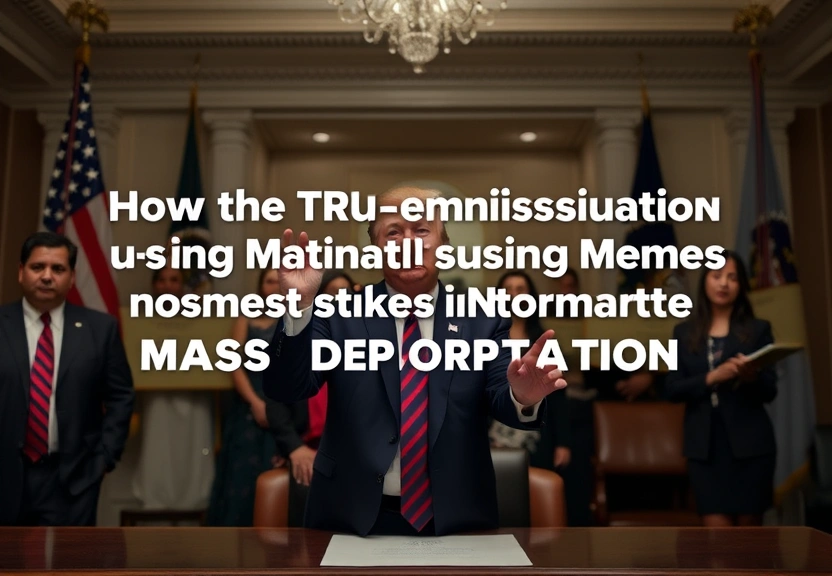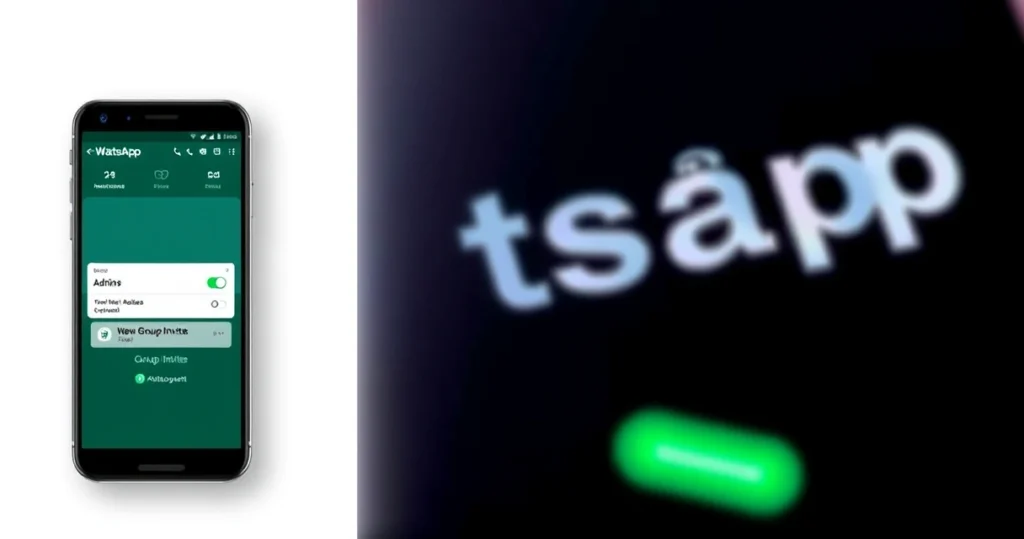How the Trump Administration is Using Memes to Normalize Mass Deportation
The Trump administration’s approach to immigration policy has sparked intense debate and controversy, particularly concerning the administration’s strategies around mass deportation. In an era where social media plays a pivotal role in shaping perceptions, the use of memes has emerged as a significant tool for normalizing these contentious policies. Memes, often seen as humorous snippets of culture, have been co-opted by governmental entities like the White House, Department of Homeland Security (DHS), and Immigration and Customs Enforcement (ICE) to convey messages that align with their immigration agendas. This article delves into how these memes not only communicate policy but also propagate a narrative steeped in Christian nationalism and influence public sentiment.

This normalization of mass deportation through memes is a multifaceted phenomenon, employing catchy TikTok tunes and relatable formats to engage a wider audience. Experts suggest that these efforts are not merely coincidental but are strategically designed to reshape the discourse around immigration. By examining the mechanics behind these memes and the broader implications of their distribution, we can better understand their role in the Trump administration’s immigration strategy.
The Power of Memes in Modern Communication
Memes have become a language of their own in the digital age, capable of conveying complex ideas in a simple, engaging format. They are a powerful form of social media communication that can influence opinions, create cultural narratives, and even sway political ideologies. The Trump administration has adeptly harnessed this power to promote its immigration policies, particularly mass deportation.
Understanding Memes
At their core, memes are cultural symbols or social ideas that spread virally through the internet. They often use humor, irony, or satire to connect with audiences, making them especially effective in political discourse. The Trump administration’s use of memes serves as a double-edged sword: while they entertain, they also convey serious political agendas, particularly concerning immigration.
Social Media Influence
The rise of platforms like TikTok, Instagram, and Twitter has transformed how information is disseminated. Memes can go viral within hours, reaching millions of users and creating a shared understanding or narrative. In the context of immigration policy, the Trump administration has utilized these platforms to disseminate its views on mass deportation, framing it as a necessary action for national security and economic stability.
Normalizing Mass Deportation Through Memes
The normalization of mass deportation is a critical concern, especially in how it shapes public perception and acceptance of harsh immigration policies. The Trump administration’s memes often present deportation as a routine and necessary process, stripping away the human element of the individuals affected.
Framing Deportation as Routine
By integrating humor and catchy tunes into their messaging, the administration has made mass deportation seem like a regular part of American life rather than a punitive action. This framing minimizes the emotional and ethical implications of deportation, making it easier for the public to accept. The use of relatable memes can dull the harsh realities of immigration enforcement, creating a disconnect between the policy and its human impact.
Christian Nationalism and Immigration Policy
Alongside the normalization of mass deportation is the intertwining narrative of Christian nationalism. Many memes shared by the Trump administration and its affiliates evoke themes of American exceptionalism and divine destiny. These narratives frame immigration through a lens that aligns with certain Christian ideologies, suggesting that the U.S. is a nation chosen by God, thus justifying exclusionary practices against immigrants.
Expert Insights: The Purpose Behind the Memes
Experts in social media influence and political communication argue that the Trump administration’s use of memes is a calculated effort to reshape the narrative around immigration. By utilizing humor and pop culture, the administration aims to engage younger audiences who might otherwise be indifferent to political discourse.
Engaging the Youth
The integration of catchy TikTok tunes and meme formats makes these messages accessible and relatable to younger demographics. This strategy not only serves to propagate the administration’s viewpoint but also seeks to foster a sense of community among supporters. The viral nature of memes allows these narratives to spread quickly, creating a shared understanding among users.
Expert Opinions on the Impact
Experts assert that this strategy is detrimental to the discourse surrounding immigration. By framing deportation humorously, it reduces the seriousness of the issue and can lead to desensitization among the public. This desensitization can have real-world implications, making it easier for policies that harm vulnerable populations to gain acceptance.
Important Points to Consider
- Memes serve as a powerful tool for political communication, especially in shaping public opinion.
- The Trump administration’s use of memes normalizes mass deportation by framing it as routine and necessary.
- Christian nationalism is interwoven into the narrative, justifying exclusionary immigration policies.
- Social media platforms amplify the reach of these memes, engaging younger audiences.
- Experts warn of the desensitization effect that humor in serious political issues can create.
FAQ Section
1. How are memes used in political communication?
Memes are utilized in political communication to simplify complex issues, engage audiences, and spread specific narratives quickly through social media. They often employ humor or satire to connect with users emotionally.
2. What is the relationship between memes and mass deportation?
The Trump administration has leveraged memes to normalize mass deportation, framing it as a routine part of governance, thereby reducing public sensitivity to the issue.
3. How does Christian nationalism play a role in immigration policy?
Christian nationalism influences immigration policy by framing the U.S. as a nation with a divine mission, which can justify exclusionary practices against immigrants deemed unworthy or incompatible with American values.
4. What impact do memes have on public perception of immigration issues?
Memes can significantly shape public perception by presenting immigration issues in a lighthearted manner, potentially leading to desensitization and acceptance of harsher policies.
5. Why is the normalization of mass deportation concerning?
Normalizing mass deportation is concerning because it diminishes the seriousness of the issue, making it easier for harmful policies to take root without adequate public scrutiny or backlash.
Conclusion
The Trump administration’s strategic use of memes to normalize mass deportation represents a significant shift in how immigration policy is communicated to the public. By blending humor with serious political messaging, the administration has managed to engage younger audiences and reshape the discourse around immigration. However, this approach raises ethical questions about the desensitization of the public to issues that deeply affect individuals and communities. As we navigate this complex landscape of social media influence and political strategy, it becomes increasingly important to critically examine the narratives being constructed and their implications for society at large.
📰 Original Source
Este artigo foi baseado em informações de: https://www.wired.com/story/trump-administration-dhs-white-house-deportations-meme/



